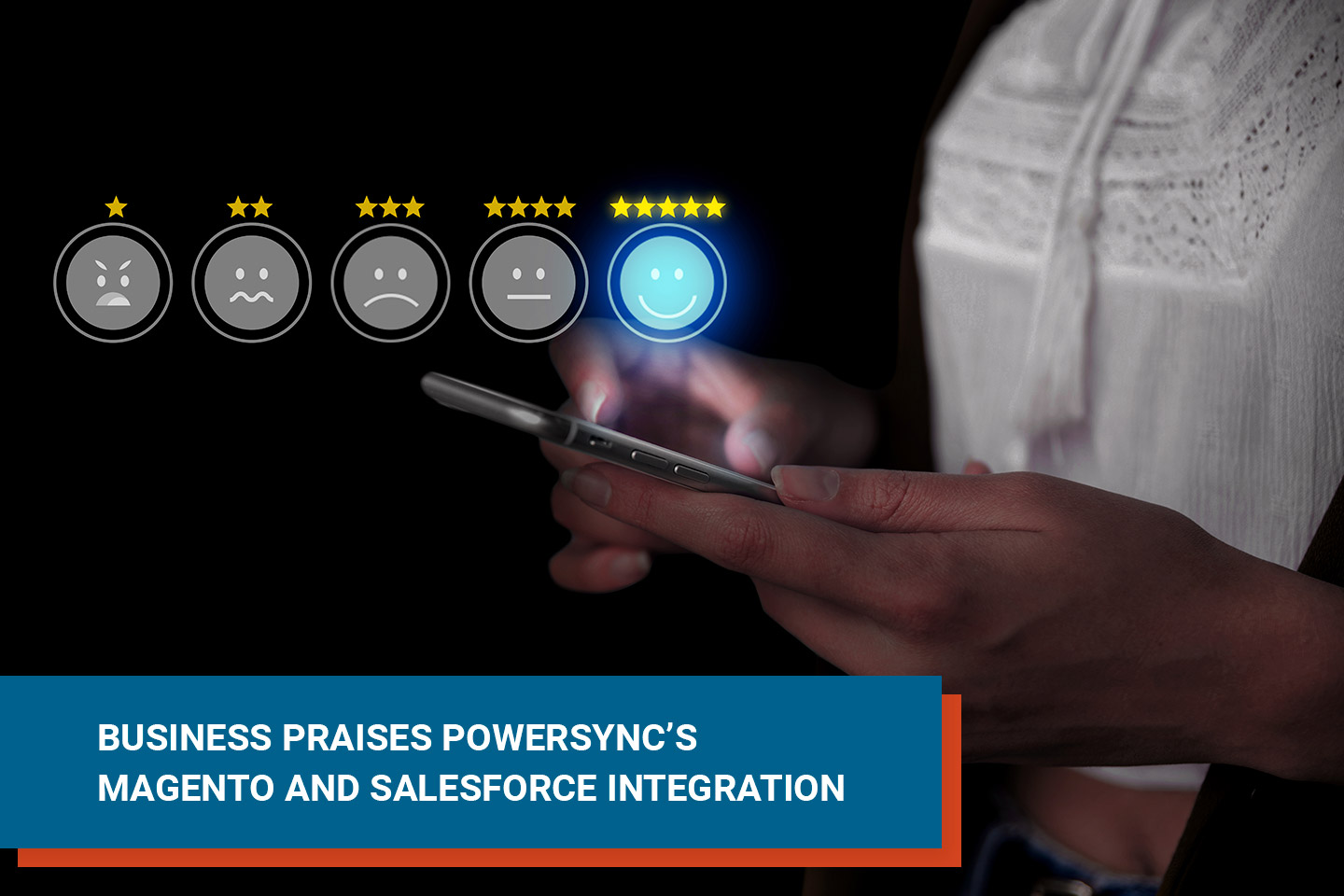The Value of a CRM Integration
 Igor Krasnykh
·
3 minute read
Igor Krasnykh
·
3 minute read

What makes a merchant successful? Is it about offering the best product, variety or price? Today, marketing gurus argue that success centers around positive customer experiences. Consumers might make an initial purchase because they liked a product on your site, but receiving excellent service is what will make them come back time and time again.
CRM integration in eCommerce

How can merchants gather the data they need to make quick and informed decisions that will enhance customer experience? Customer Relationship Management (CRM) systems help them do just that. For example, Salesforce CRM has been the leader in the market for many years. From lead conception to a revenue-generating account, Salesforce offers a variety of merchant tools that capture the entire customer journey.
CRMs allow businesses to track every interaction they have with prospects and customers, so no communication gets lost. This helps to keep sales reps on the same page as they nurture relationships. With all of the data stored in one place, merchants are able to conveniently access a 360-degree view of every customer.
In order for online merchants to get the most out of a CRM system, it must be able to communicate with their eCommerce platform. CRM integration syncs data between the two systems so that information is consistent and the need for platform-hopping is eliminated. CRM integration also has the potential to save businesses many valuable hours of duplicated manual data entry.
The importance of choosing the right eCommerce platform

Your online business can only be as good as the functionality of your eCommerce platform. Choosing the right eCommerce platform allows you to provide a meaningful and seamless shopping experience so you can run your business in an intelligent way. It also primes you for necessary functions, such as CRM integration. For businesses that have a growth mindset, it is important to invest in an eCommerce platform that is able to scale with you. If you don’t, a bottleneck will present itself as you expand, forcing you to either stay stagnant or endure a cumbersome migration. Our eCommerce experts recommend the Magento platform. Magento, which is owned by Adobe, has established a strong reputation in the SMB space. The release of Magento 2 expanded on that foundation by rolling out an impressive set of tools for enterprise-level clients. In addition, Magento offers extraordinary cataloging, order management and fulfillment capabilities. We outline several in-depth reasons why we promote Magento in another blog post, but to summarize those points, Magento offers:
- open, flexible architecture;
- abundant, built-in customization options;
- flexible pricing to serve merchants of all sizes (including free!);
- enterprise-level security & functionality;
- free, comprehensive training through Magento U;
- thousands of plugins that expand on the platform’s already outstanding capabilities (including CRM integration).
Salesforce CRM integration with Magento

How beneficial is it to use Magento and Salesforce? Is there value in integrating the two?
Based on our experience, we believe using Magento and Salesforce in conjunction with each other gives merchants the best chance at making smart decisions based on tangible data. Tying the systems together provides a more holistic view of every customer and where they are in their journey with your brand.
Imagine generating interest in your product via an email campaign, a conference or a digital or a print ad. Those various marketing channels help you gather information about your target audience, and Salesforce helps B2B and B2C businesses keep track of all leads and customers in one place. It may take several communication attempts (phone, email and so on) to nurture potential customers into loyal customers, and every step of that journey can be easily tracked in a CRM system.
In Salesforce, merchants are able to classify potential customers in the “Opportunity” stage. At some point, however, they will become more inclined to buy something from you. Depending on your business model, there might be a light or cumbersome negotiation process that takes place before the customer is happy and ready to commit. For example, you may need to send a quote from Magento, but without a CRM integration, you wouldn’t be able to see it in Salesforce.
In the retail world, the process leading to a sale might be more straightforward, but every merchant still has a similar pre-sale process where the customer needs a little push before they commit. Based on our observations every single eCommerce site, regardless of the business model, has:
- visitors who are just browsing;
- a small population of visitors who register for some incentive but never purchase anything;
- a group of customers who add products to their cart but never convert because they either change their mind during the checkout process or leave to search for a better deal.
Without a CRM integration between Magento and Salesforce, merchants only see part of the picture. In our experience, Salesforce is often not exposed to the whole side of the eCommerce business. This includes the process of invoicing a customer, collecting the payment, shipping the goods, providing tracking information, returning merchandise authorizations and processing refunds. The CRM integration between Magento and Salesforce helps close this gap, offering merchants a complete view of every customer and sale.



